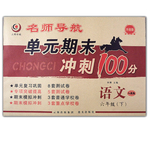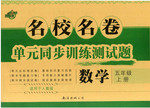题目内容
I returned to Abuja, the capital of Nigeria ,after college graduation. I had been there before my mother became a minister.
Two weeks later, I told my mother I was bored.She said, “Here’re the car keys.Go and buy some fruit.” 36 ,I jumped into the car and speeded off.
Seeing me or rather my 37 ,a boy sprang up(跳起来). 38 to sell his bananas and peanuts. “Banana 300 naira.Peanut 200 naira! ”
Looking at his black-striped bananas,I 39 to 200 total for the fruit and nuts.He 40 .I handed him a 500 naira note.He didn’t have 41 .So I told him not to worry.He was 42 and smiled a row of petfect teeth.
When, two weeks later, I 43 this same boy, I was more aware of my position in Nigerian soeicty.I should 44 this country as the son of a 45 .But it was hard to find pleasure in a place where it was so 46 to see a little boy who should have been in school selling fruit.
“What’s up?”I asked. He answered in 47 English, “I…I no get money to buy book. ”I took out two 500 naira notes.He looked around 48 before sticking his hand into the car 49 the bills.One thousand naira means a lot to a family that 50 only 50,000 each year.
The next morning,security officers told me, “In this place,when you give a little,people think you’re a fountain of opportunity(机会).”
51 it’s right,but this happens everywhere in the world.I wondered if my little friend had actually used the money for 52 .
After six months’work in northern Nigeria,I returned and saw him again standing on the road.
Are you in school now?”
He nodded.
A silence fell as we looked at each other, then I 53 what he wanted. I held out a 500 naira note. “ Take this.”
He shook his head fiercely and stepped back 54 hurt.
“It’s a gift. ”I said.
Shaking his head again,he handed me a basket of bananas and peanuts, “I’ve been waiting to 55 these to you.”
36.A.Encouraged B.Disappointed C.Delighted D.Confused
37.A.car B.mother C.driver D.keys
38.A.willing B.afraid C.eager D.ashamed
39.A.got down B.bargained down C.put down D.took down
40.A.explained B.promised C.agreed D.admitted
41.A.change B.notes C.checks D.bills
42.A.troubled B.regretful C.comfortable D.grateful
43.A.ran after B.ran into C.ran over D.ran to
44.A.proteet B.enjoy C.help D.support
45.A.minister B.headmaster C.manager D.president
46.A.lucky B.amazing C.funny D.common
47.A.old B.broken C.traditional D.modern
48.A.proudly B.madly C.curiously D.nervously
49.A.for B.with C.at D.upon
50.A.spends B.pays C.makes D.affords
51.A.Possibly B.Actually C.Certainly D.Fortunately
52.A.joys B.nuts C.books D.bananas
53.A.asked B.imagined C.reminded D.realized
54.A.when B.as if C.even if D.after
55.A.send B.provide C.sell D.give
36—40:CACBC 41—45:ADBBA 46—50:DBDAC 51—55:ACDBD
解析:
36.解析:delighted意为“高兴的’,常说明人或与人密切相关的事。作状语,表示某人做某事时的心情。根据上文的内容可以看出,作者对他妈妈说他感到无聊,他妈妈把汽车的钥匙给他,让他开车去买一些水果,这是一件令人高兴的事,所以作者感到非常高兴。encouraged意为“受到鼓舞”。disappointed意为“感到失望”。confused意为“感到混乱的”。都与作者当时的心情不相符合。
37.解析:car意为“汽车”,根据上文的内容可判断出男孩看到的是作者的汽车,再从下文的sprang up可判断出作者开车来到了商店。mother意为“妈妈”。driver意为“驾驶员”。key意为“钥匙”。这都不是男孩当时看到的内容。
38.解析:eager意为“渴望,极想,热衷于”,多指对成功的期望或进取的热情,带有更多热切兴奋的情绪,但不含有焦虑担心的意味。从男孩看到汽车后的反应sprang up可判断出他热切的想把水果卖给作者。willing意为“情愿的”,强调不仅自愿,而且还高高兴兴,表现出很大热情。afraid意为“害怕的”,表示做某事时表示出的恐惧感。ashamed常作表语,意思是“羞耻,惭愧,害臊”,这与所提供的情景sprang up矛盾。
39.解析:bargain意为“讨价还价”,指在买东西时与店主讲价钱,力争把价格降到最低点。down与bargain连用表示经讨价还价把价格降到了某一点。根据下文中的to 200 total for the fruit and nuts可判断出作者经过讨价还价,把价格降到200奈拉。get down意为“落下,降下;下车;写下;放下,咽下;使沮丧,使抑郁;开始认真对待,开始认真考虑”。put down意为“记下”。take down意为“拿下,扯下,降下,卸下;卷起;记下;卸下;拆,拆毁(房子),拆散(头发),分开;挫其骄气;吞下去,咽下去”。
40.解析:agree意为“同意”,表示同意做某事。根据下文中I handed him a 500 naira [奈拉(尼日利亚货币名)]note.可判断出男孩同意以200奈拉出售自己的水果。explain意为“解释”,指解释不了解的事情,说明某事的形状或结构,追溯它的起源和沿革,讲述它的性能或功用,指出它的原理或述说它的各部分之间的关系。promise意为“允诺,答应”,指许下诺言将做某事。admit意为“承认”,常指由于客观因素所迫,不得不承认某一已经证实的或难以否认的事实,有时也可指在争论中姑且让步,含有不情愿的意味。
41.解析:change意为“零钱”,根据下文中的so I told him not to worry可判断出男孩没有零钱。买水果只需要200奈拉,而作者给了他一张500奈拉的票子,所以需要找零钱。note意为“纸币”,买水果的人没有纸币的可能性是没有的。check意为“支票”,买水果是小本生意,不会使用支票作为付账方式。bill意为“账单”。
42.解析:grateful意为“感恩的,感谢的”,指对他人的帮助或恩惠内心充满感激,含有持续性。由于经讨价还价讲好以200奈拉的价格出售水果,而顾客给了500奈拉,男孩自然会感激万分。troubled意为“为难的,不安的,困惑的;骚乱的,不宁的”,指因某事引起心烦意乱,忐忑不安的心情。regretful意为“悔恨的,后悔的,惋惜的,有遗憾的,抱歉的”,表示对自己所做的事感到悔恨。comfortable意为“愉快的,安乐的,舒适的;令人感到安慰的”。都没有正确表达出男孩当时的心情。
43.解析:run into意为“遇到”,强调其偶然性,表示并不是故意遇到某人。根据下文的内容可判断出两天后作者又遇到了同一个男孩。run after意为“追赶”。run over意为“溢出;泛出;(人)走近 (to);略一过目,匆匆忙忙看一遍;想想看;概括地讲;匆匆排练,急奏(乐谱);(车辆等)辗过(人)”。run to意为“跑向”。
44.解析:enjoy意为“喜欢”,指因某物或某事而在感官或精神上得到乐趣或满足,侧重于享受感官或心智上的满足或乐趣。protect意为“保护,包庇,守护”。根据短文的内容可判断出作者不是这个国家的保卫者。help意为“帮助”,指帮助某人或某个国家,根据第一段中的I returned to Abuja, the capital of Nigeria, after college graduation. I had been there before my mother became a minister.可判断出作者只不过是部长的儿子,因此不存在帮助这个国家的问题。support意为“支持”。也与上文的内容不相符合。
45.解析:minister意为“部长;阁员,大臣”,根据上文中的I had been there before my mother became a minister.可判断出作者是一位部长的儿子。headmaster意为“校长”。manager意为“经理”。president意为“总统”。都与上文的内容不相符合。
46.解析:common意为“普通的,通常的,寻常的,平常的”,指因许多人或物共同具备而常见,不足为奇。表示看见一个本来应该上学的孩子买水果是一件非常平常的事。lucky意为“运气好的,侥幸的”,指未经努力,完全出于好运、偶然的原因或因素而获得意外的成功或免于受到伤害。amazing意为“令人惊异的”。funny意为“有趣的,好笑的,滑稽的”。
47.解析:broken用于修饰语言时,意为“拙劣的,不合标准”,指断断续续地,很不规范地说某种语言。从下文中的I … I no get money to buy book.可判断出男孩的英语说得既断断续续又不符合英语语法的规定。old意为“古老的”,old English指很久以前人们说的英语,与modern English相比较。traditional意为“传统的,惯例的”。modern意为“现代的”,modern English指现在人们说的英语。
48.解析:nervously意为“紧张地”,着重指精神上不安或激动,可能因性格或所处环境引起,常表现于行为。根据上文中的内容可判断出男孩在接钱之前紧张地向四面看了看。因为1,000奈拉对他来说是一笔巨款。proudly意为“骄傲的”。madly意为“疯狂地,疯狂似地”。curiously意为“好奇地”。
49.解析:for意为“为了”,表示做某事的目的。for the bills为拿到钱币而把手伸进汽车里。with意为“和……一起,和……一块儿,和……同时”。at意为“向,对”,表示动作的目标。upon意为“在……之上”。
50.解析:make后接表示“钱”的名词表示“挣,赚”。从上文中男孩紧张的接过钱币可判断出尼日利亚一个家庭一年才能挣50,000奈拉。spend意为“花费”。pay意为“付(款),支付;付(代价),发(薪水)”。afford意为“花费得起”。
51.解析:possibly意为“可能地;也许”,指在能办到或达到的范围之内的可能,也指客观、潜在的可能,可能性小于maybe和probably,暗示实际希望不大,但仍有机会。表示上面所说的话可能是对的。actually意为“实际上”。certainly意为“的确,无疑,一定,必定”,表示非常肯定。fortunately意为“幸运地”。
52.解析:book意为“书”,根据上文中的I … I no get money to buy book.可判断出作者给男孩钱的目的是想让他买书,所以他听了这些话后想知道男孩是否真的把钱花在买书上。joy意为“快乐,高兴”。nut意为“坚果”,指核桃、榛、栗等的果实。banana意为“香蕉”。都不符合上文的内容。
53.解析:realize意为“领悟,了解,体会”,指作者意识到男孩究竟想要什么。ask意为“问”。imagine意为“想像,设想;猜想,推测”,指没有事实根据、仅凭主观想像进行猜想,往往与众所周知的事实相反。remind意为“提醒;使记起”,常指某人或某物使人想起或回忆起可能已经淡忘的情况,也可指以某物或某种方式提醒某人不至于忘记某事。
54.解析:as if意为“好像,似乎”,句子省略了he was。表示当作者把500奈拉递给男孩时, 他似乎受到了伤害。when意为“当……的时候”。even if意为“尽管”。after意为“在……之后”。
55.解析:give意为“给”,指把东西亲手当面交给某人。男孩一直等在那儿的目的是把水果给作者。send意为“送”,send多指寄送或通过其他手段送,自己并不一定去送,这与短文提供的情景不相符合。provide意为“提供,供应某物”。sell意为“卖”。

 名师导航单元期末冲刺100分系列答案
名师导航单元期末冲刺100分系列答案 名校名卷单元同步训练测试题系列答案
名校名卷单元同步训练测试题系列答案I returned to Abuja, the capital of Nigeria, after graduation. I had been there before my mother became a minister. Two weeks later, I told my mother I was bored. She said, “Here’re the car keys. Go and buy some fruit.”_36_, I jumped into the car and speeded off.
Seeing me or rather my 37 , a boy sprang up, 38 to sell his bananas and peanuts. “Banana 300 naira. Peanut 200 naira!” Looking at his black-striped bananas, I 39 to 200 total for the fruit and nuts. He 40 and I handed him a 300 naira note. He didn’t have 41 , so I told him not to worry. He was 42 and smiled a row of perfect teeth.
When, two weeks later, I 43 this same boy, I was more aware of my position in Nigerian society. I should 44 this country as the son of a 45 . But it was hard to find pleasure in a place where it was so 46 to see a little boy who should have been in school selling fruit.
“What’s up?” I asked. He answered in 47 English, “I…I no get money to buy book.” I took out two 500 naira notes. He looked around 48 before sticking his hand into the car 49 the bills. One thousand naira means a lot to a family that 50 only 15,000 each year.
The next morning, security officers told me, “In this place, when you give a little, people think you’re a fountain of opportunity.” 51 it’s right, but this happens everywhere in the world. I wondered if my little friend had actually used the money for 52 . After six months’ work in northern Nigeria, I returned and saw him again standing on the road. “Are you in school now?” He nodded. A silence fell as we looked at each other, and then I 53 what he wanted. I held out a 150 naira note. “Take this.” He shook his head fiercely and stepped back 54 hurt. “It’s a gift.” I said. Shaking his head again, he handed me a basket of bananas and peanuts. “I’ve been waiting to 55 these to you.”
|
1. |
|
|
2. |
|
|
3. |
|
|
4. |
|
|
5. |
|
|
6. |
|
|
7. |
|
|
8. |
|
|
9. |
|
|
10. |
|
|
11. |
|
|
12. |
|
|
13. |
|
|
14. |
|
|
15. |
|
|
16. |
|
|
17. |
|
|
18. |
|
|
19. |
|
|
20. |
|